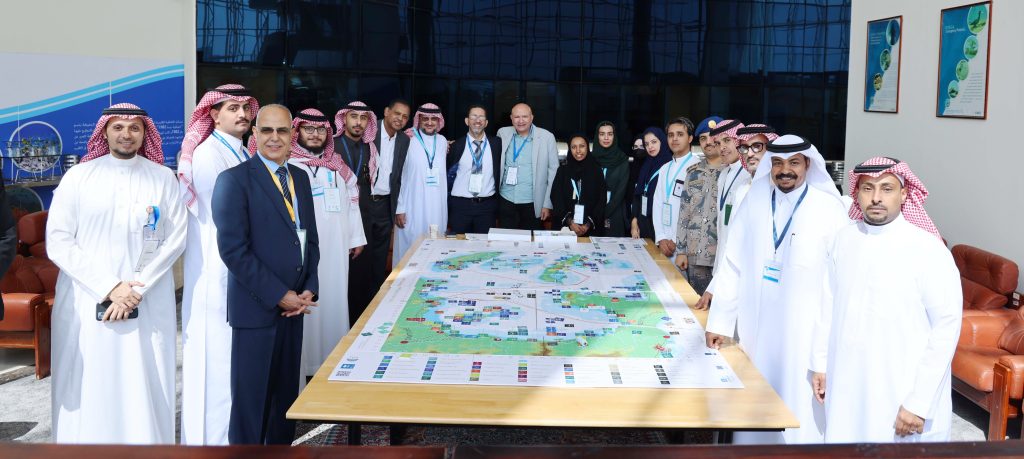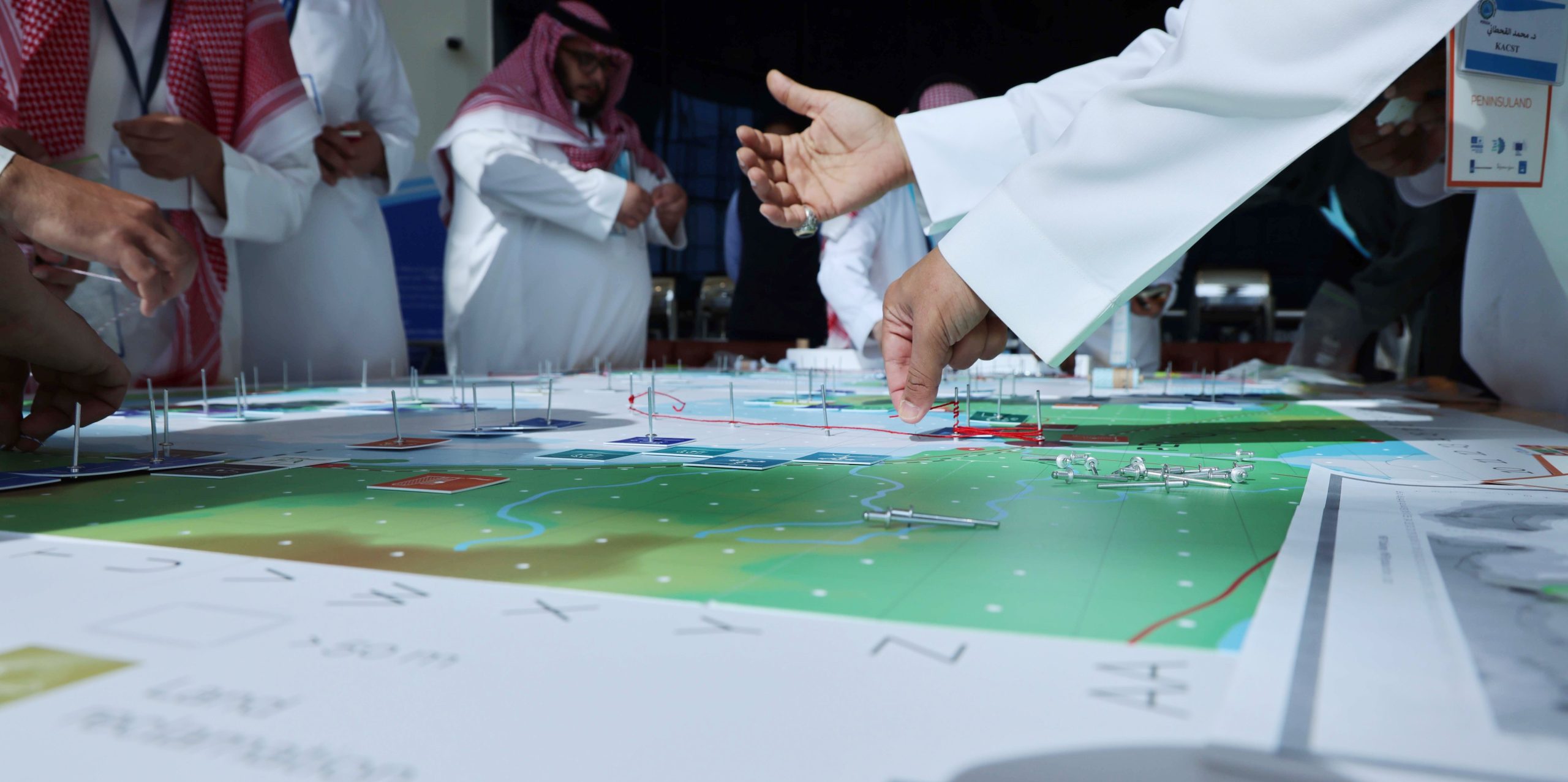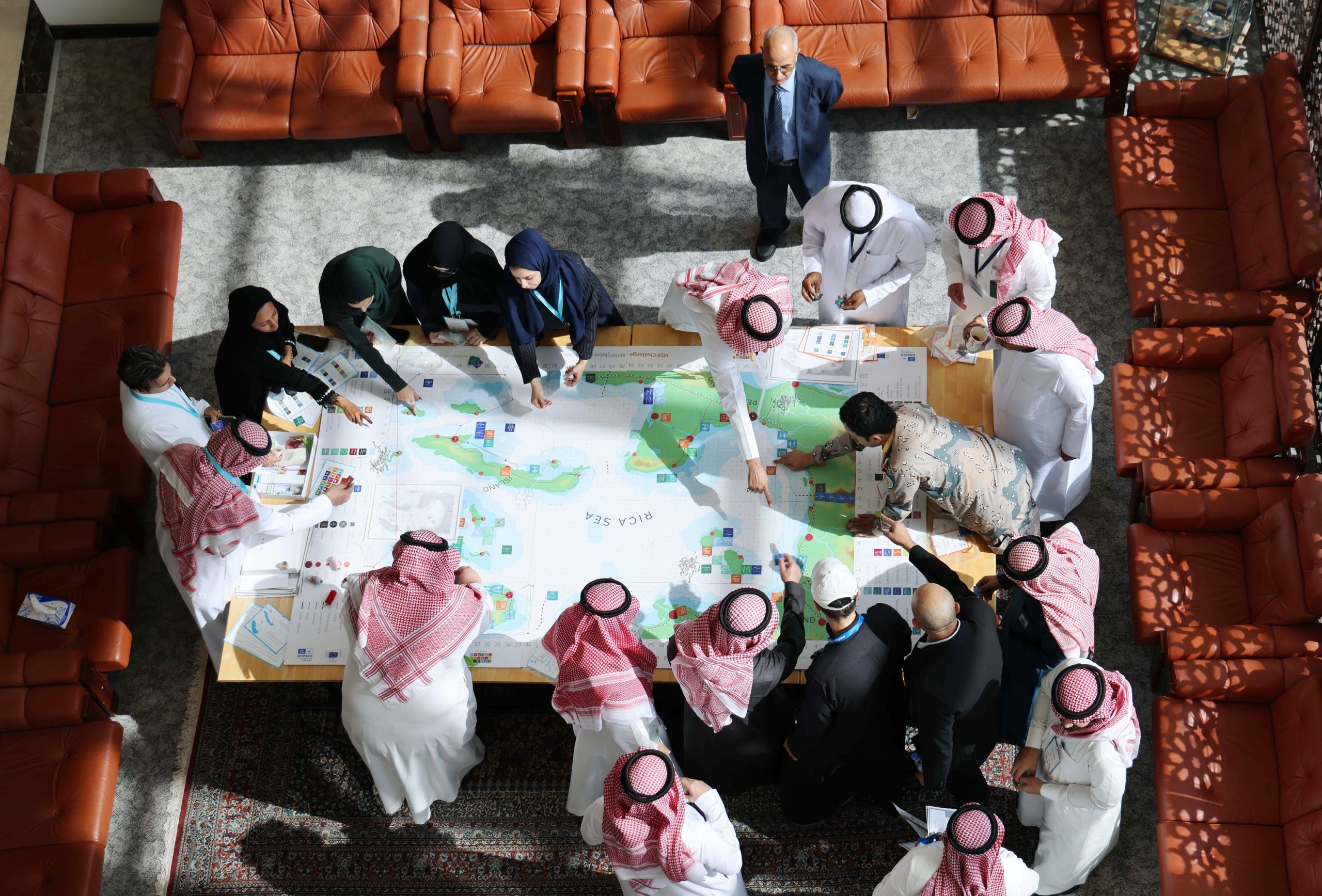Within the framework of implementing its annual capacity-building program, the Regional Organization for the Conservation of the Environment of the Red Sea and Gulf of Aden (PERSGA) conducted a national practical training course on “Marine Spatial Planning” at PERSGA’s headquarters in Jeddah from 16-17 December 2024. this course comes as part of collaboration with the International Oceanographic Commission of UNESCO and the Global Marine Spatial Planning Initiative (MSP Global).
About 19 specialists representing various national authorities and stakeholders concerned with marine spatial planning in Saudi Arabia participated in the training course (participant list in Annex 2). the training course aimed at introducing the concept of marine spatial planning and its importance in achieving sustainable development goals, it also highlighted the relationship between MSP and marine resources, biodiversity and sustainable blue economy. the course also focused building capacities for harmonization and integration among the various sectors relevant to the marine and coastal environment in planning stages, resulting in maximizing environmental, social, and economic benefits from ecosystem services.
The training course was inaugurated under the patronage of His Excellency, PERSGA Secretary-General, who welcomed the attendees and emphasized the importance of Marine Spatial Planning (MSP) as a vital tool for the management of coastal and marine resources, MSP helps to reduce conflicts of interest among various sea users and contributes to achieving balance between the three pillars of sustainable development: economic growth, social development, and environmental protection. He also added that through MSP, management plans are developed for marine resources and ecosystem services, resulting in equitable spatial and temporal distribution of human activities. Additionally, MSP enhances cooperation among various authorities and stakeholders at the national level, as well as trans-boundary and regional levels.
The training was delivered by PERSGA’s experts, and consisted of two parts: a theoretical par, which took place on the first day, covering the definitions and terms related to marine spatial planning, its concept, and relationship to integrated coastal zone management, highlighting the importance of MSP in the protection and sustainability of marine resources and ecosystem services, and its connection to the sustainable blue economy. The presentation also outlined the stages and steps involved in the development of an MSP plan including defining scope and objectives, engaging stakeholders, collecting and analyzing data, developing and evaluating scenarios, drafting the plan, conducting public consultations, implementing the plan, and continuously monitoring and evaluating its effectiveness.
On the second day, a practical training was conducted using the “Marine Spatial Planning Challenge” Board Toolkit, which PERSGA obtained through collaboration with the Intergovernmental Oceanographic Commission of UNESCO and the Global Marine Spatial Planning Initiative “MSP Global”. The MSP Challenge toolkit (Rica Sea Toolkit) was developed by Intergovernmental Oceanographic Commission of UNESCO – IOC-UNESCO, European Commission and Dutch Ministry for Infrastructure and Water Management, Directorate General for Water, and then translated into Arabic by PERSGA.
The Rica Sea board toolkit designed to simulate the challenges of Marine Spatial Planning (MSP) in a shared marine environment. participants assume the roles of various stakeholders, such as industry representatives, conservationists, and government officials, in three countries bordering the fictional Rica Sea. By simulating real-world scenarios and encouraging collaborative decision-making, participants will develop a deeper understanding of the complexities of managing marine resources sustainably. Participants must achieve a productive and sustainable Rica Sea by spatially allocating economic and ecological functions while developing shipping and infrastructure. This involves balancing economic development with environmental protection and ensuring a clean, safe, and healthy marine environment.
A concluding discussion session was then held on the lessons learned and recommendations. Participants agreed on a set of recommendations, including urging PERSGA to continue conducting similar training courses and organizing regional courses and workshops on marine spatial planning. They also recommended including marine spatial planning concepts in university undergraduate curricula. At the end of the course, participants were provided with relevant documents and training materials. Based on the evaluation results and participants’ feedback, the national training course was very successful and achieved its overall objectives.





